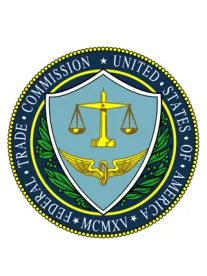The Federal Trade Commission’s (“FTC”) recently submitted Congressional Budget Justification and Annual Performance Plan and Report contains helpful insight into the FTC’s focus and expectations for the coming fiscal year. Of particular note, is a slight shift of funds from activities designed to “protect consumers” to activities intended to “promote competition.” High on the FTC’s list of actions designed to promote competition is continued scrutiny of the health care industry. And to that end, the FTC reiterated its intention to, among other things:
Take action against anticompetitive agreements among health care providers and to challenge anticompetitive mergers of hospitals, medical device manufacturers, pharmaceutical companies, and other health care providers that contribute to the rising cost of health care. The FTC will also continue to advance its health care enforcement program by challenging anticompetitive conduct in the pharmaceutical industry that delays the introduction of generic drugs and costs consumers and governments enormous sums of money each year. The agency also will continue its vigorous advocacy for health care competition by advising local, state, and federal entities, upon request, on the competitive implications of pending government actions.
In order to accomplish its goals, the FTC has proposed a budget for its Fiscal Year 2018 of $306,317,000, which is on par with its current annual budget. The amount requested would be offset by filing fees submitted pursuant to the Hart-Scott-Rodino Antitrust Improvements Act (“HSR”) by parties to transactions (mergers, joint ventures, etc.) meeting the HSR filing thresholds. Filing fees are split with the Department of Justice, and the budget justification notably projects a reduction in anticipated filings resulting in a drop of approximately $15 million in expected fees.
The FTC’s budget justification also forecasts a slight drop in staff from 1,161 to 1,140 FTEs. However, this reduction is not a consequence of diminished enforcement expectations but rather the effect of balancing out staff raises from the prior year with an effort to meet the President’s current budget request. The reduction in staffing levels is expected to be accomplished through attrition and an adjusted hiring strategy rather than personnel layoffs. Significantly, staffing levels for activities designed to promote competition are only nominally affected, and the FTC has actually asked for an increase in funding (approximately $1 million) associated with competition promoting activities.
Metrics from the prior year are also worth noting. In particular, the FTC brought 29 enforcement actions in fiscal year 2016 of which 22 were merger related. The FTC identifies mergers that raise potential antitrust concerns through the HSR filing process, as well as through “consumer and competitor complaints, referrals from other government agencies, and trade press.” The FTC estimates that it saved consumers over $2.1 billion dollars in fiscal year 2016 as a result of its merger enforcement activities.
Overall, the FTC returned approximately $50.3 million dollars to consumers, and $7.3 million to the U.S. Treasury as a result of its enforcement actions in fiscal year 2016. In addition, the FTC made a number of criminal referrals to the Department of Justice, resulting in 56 separate actions brought from FTC related matters.




 />i
/>i

